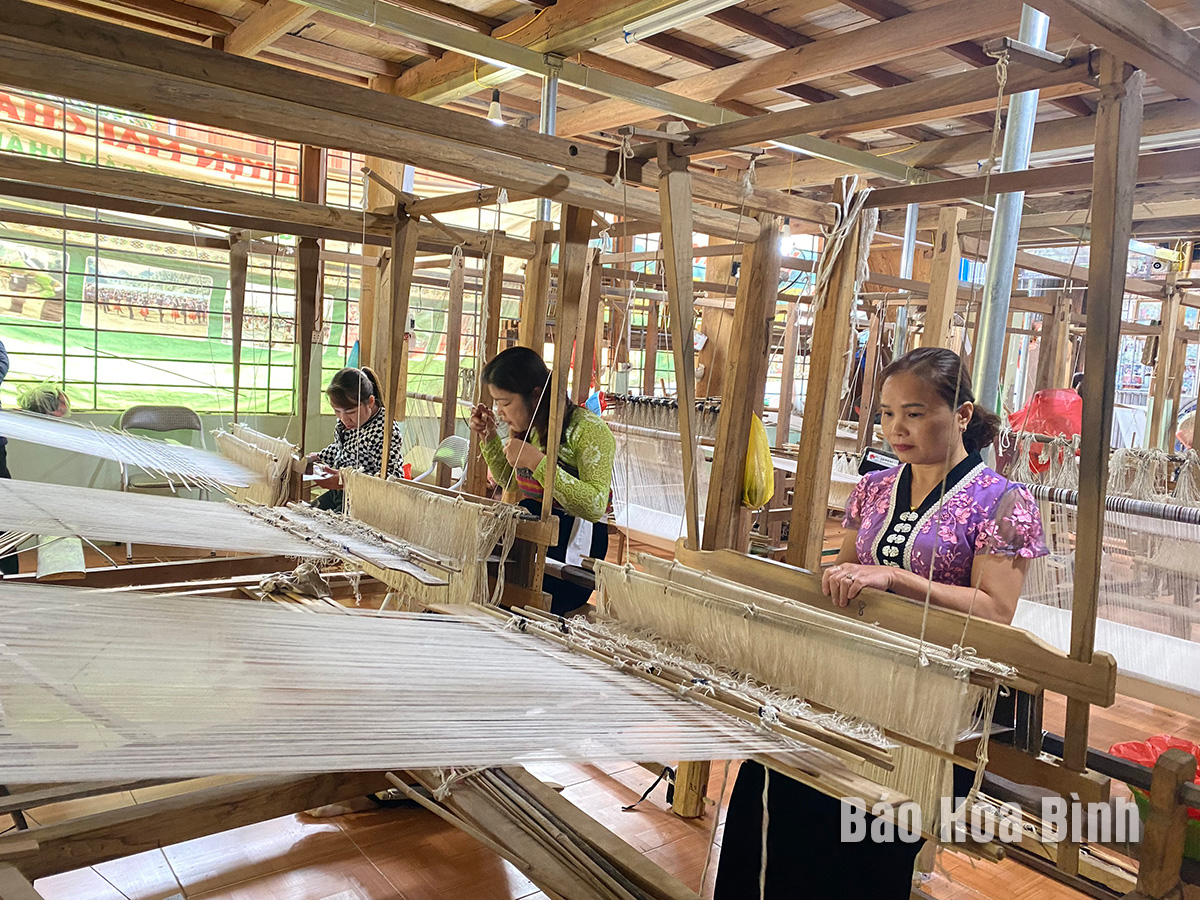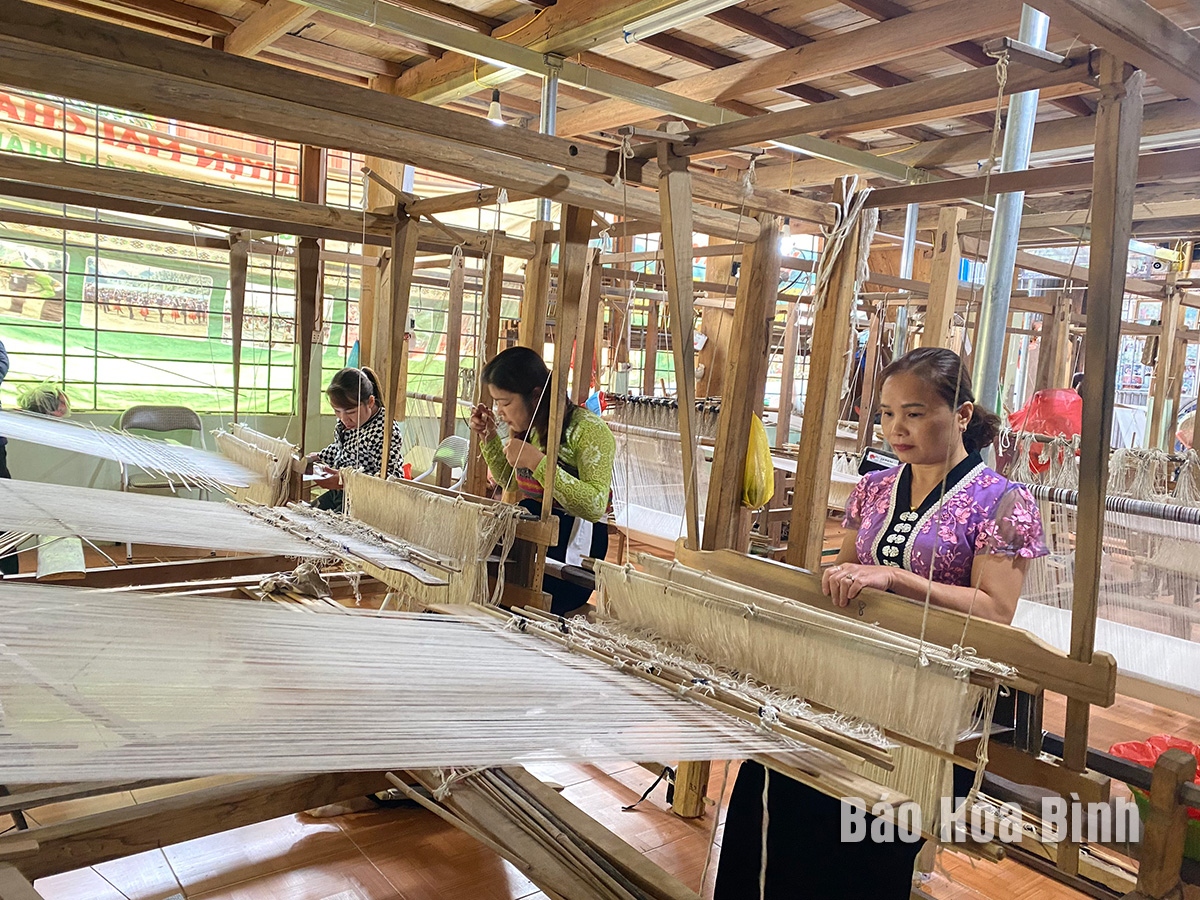
In Hoa Binh province, 11 traditional craft villages with more than 400 small-scaled production households have put in place a clean and green production model, establishing new standards for sustainable development. Waste collection sites and wastewater treatment facilities have been meticulously managed by local residents.

Chieng Chau commune in Mai Chau district has paid due attention to building
green craft villages towards sustainable development.
Before
the concept of "green craft villages" emerged, many craft zones in
the province suffered from pollution caused by smoke, dust, chemical odours,
and waste from workshop operations. The conflict between economic development
and environmental protection had been a difficult puzzle to solve for years in
traditional craft villages.
In
recent years, many rural areas have stopped waste burning. Stone processing
workshops now spray materials with water before cutting to prevent dust, and
debris is collected rather than dumped into streams. Meanwhile, brick kilns that
once released thick smoke have been upgraded, with many facilities switching
entirely to non-fired brick production
Raising
public awareness is the key to environmental protection. In 2020-2022, the
province organised more than 180 workshops and training sessions on
environmental protection, along with more than 100 drives for collection of
pesticide packaging, attracting over 4,000 participants.
Furthermore,
environmental protection messaging has been integrated into the spiritual and
cultural life of communities through four theatrical exchanges, drawing
competitions, contests, and many more.
Rather
than top-down directives, local citizens have been empowered through grassroots
initiatives like "residential areas of self-managed environmental protection".
Village-based teams now enforce regular cleaning schedules, while small
workshops have invested in wastewater treatment systems, dust barriers, and
proper safety equipment.
Many
of Hoa Binh's craft villages now serve as models for sustainable production. In
Tan My commune, once severely polluted, residents have implemented biogas
systems, waste separation, and strategic greenery. These efforts have
revitalised formerly contaminated rice fields and restored clean air.
The Standing Board of the Hoa Binh provincial Party Committee has agreed in principle on a proposal by the Standing Board of the Party Committee of Hoa Binh city to gather feedback on the city’s 1:2000 zoning plan, which forms part of its broader urban development strategy.
Hoa Binh province has made notable progress in public administration reform and digital government development, with the satisfaction index among citizens and businesses reaching over 84%, according to recent government evaluations.
Thanks to great efforts by local authorities in recent times, the governance and public administration performance of Mai Chau district has been significantly improved.
In the afternoon of June 6, the Party Committee, the People's Council, the People's Committee and the Fatherland Front of Lac Son district solemnly held a meeting to celebrate the 139th anniversary of the district's founding (1886–2025) and the 79th anniversary of the establishment of the district's Party Committee (1946–2025). There was the attendance of Mr. Bui Van Thang, the Vice Chairman of the Provincial People's Council; Mr. Quach Tat Liem, the Vice Chairman of the Provincial People's Committee; Ms. Dang Bich Ngoc, the Deputy Head of the National Assembly Delegation of the province; as well as the former leaders of the province and district through various periods, who are the natives of the district.
Implementing the Politburo’s Resolution No. 57-NQ/TW on breakthroughs in science – technology, innovation, and digital transformation is a golden opportunity for the northern mountainous province of Hoa Binh to renew growth model, improve competitive edge and shorten digital gap.
Resolution 57-NQ/TW, issued by the Politburo on December 22, 2024, identifies sci-tech, innovation, and digital transformation as strategic breakthroughs to build a developed and prosperous nation. In Hoa Binh province, this spirit is not just a slogan, it’s being put into action through concrete initiatives that form a "new development triangle”: digital citizenship, digital economy, and digital administration.



